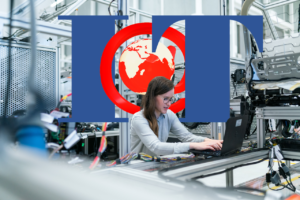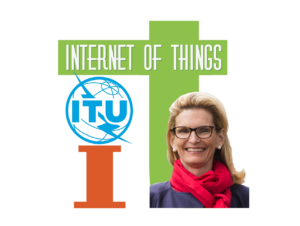Futurists and technologists are always trying to look ahead for the next big thing. In the months and years ahead, you are likely to read about two different terms — Web 3.0 and Web3 — and you might get confused. You’ll see what I mean if you watch a video created by the Wall Street Journal that can be accessed using this link. In the video, the graphics use the term Web 3.0 and the speakers generally use the term Web3. The introduction to the video notes, “Some see Web 3.0 as the next generation of the internet, a decentralized version of the web based on the blockchain.” The paper goes on to note, “Skeptics are unconvinced it could scale globally.” Journalist Tom Allen (@Tom_CTG) agrees the terms “Web3” and “Web 3.0” are going to create some real confusion in the years ahead. He explains, “Before we go any further, it’s important to distinguish between Web 3.0 and Web3. Despite Web 1.0 and Web 2.0 sharing a naming scheme, Web3 is only loosely connected to Web 3.0, a different concept revolving around making all online data machine-readable.”[1]
Web 3.0 has often been described as the Semantic Web. Wikipedia notes Tim Berners-Lee (@timberners_lee), inventor of the World Wide Web, introduced his vision of the Semantic Web in 1999 as follows: “I have a dream for the Web [in which computers] become capable of analyzing all the data on the Web — the content, links, and transactions between people and computers. A ‘Semantic Web’, which makes this possible, has yet to emerge, but when it does, the day-to-day mechanisms of trade, bureaucracy and our daily lives will be handled by machines talking to machines. The ‘intelligent agents’ people have touted for ages will finally materialize.”[2] Of course, today we do have machines talking to machines. We call this the Internet of Things (IoT); however, the IoT is not the Semantic Web envisioned by Berners-Lee. In this article, however, I want to concentrate on the Web3 concept.
What is Web3?
To be very clear, today Web3 is little more than a buzzword backed by a vision. Allen explains, “There’s a new buzzword flying about, and if you’re even tangentially on the outskirts of the tech world, you’ve probably heard about it: Web3, the supposed third version of the World Wide Web.”[1] According to Allen, “Web3 promises a return to the early ideals of the internet: a utopia of transparency and self-ownership.” He adds:
“As my colleague John Leonard wrote in 2019, ‘The upswell of revolutionary idealism that greeted Bitcoin had its roots in the birth of the web two decades earlier. In 1996’s A Declaration of the Independence of Cyberspace, John Perry Barlow wrote of a digital utopia free from intrusions by governments of the industrial world, but by 2009 that dream was gone. Then along came Bitcoin and its promise to make government obsolete, and the passion reignited.’ If you replace ‘Bitcoin’ with ‘blockchain’ (and many people already incorrectly use them synonymously), that passage can equally apply to Web3. The concept appeals to the libertarian ideals from the foundation of the internet, promising to take power — largely in the form of data control — away from Big Tech and give it back to the people. Transparency and data privacy are some of Web3’s key goals.”
If you watched the Wall Street Journal video, you learned that the goal of wresting control of the internet away from Big Tech is probably a pipedream. Why? Because blockchains require all stakeholders to abide by exact protocols and some entity must decide what those protocols are and then convince everyone else to abide by them. One big concern is that the Chinese will come to dominate the blockchain arena. Experts from the Wharton Business School report, “By all counts, China is leading the world in the use and development of blockchain technology. It has far and away filed the most patents related to blockchain in the world and some of the biggest names in the blockchain and cryptocurrency community are Chinese firms. What’s more, blockchain is also a national priority: The Chinese State Council included its development in the nation’s 13th Five-Year Plan. And [in 2018], President Xi Jinping said China seeks to lead in innovation worldwide, citing blockchain, AI, the Internet of Things and other technologies as the driving forces.”[3] That should worry everyone. Because, as Allen writes, “Blockchain is at the heart of most Web3 concepts.”
Despite concerns about Chinese dominance, there are big names lining up for and against the development of Web3. Venture capital firms, like Andreessen Horowitz, have poured billions of dollars into developing Web3 technologies. They are not investing their capital for the good of mankind. Journalist Shanti Escalante-De Mattei (@sed_paz12) explains, “Twitter founder Jack Dorsey recently posted about his intentions to bring forth web3 social media. In Mark Zuckerberg’s metaverse announcement, he hinted at the integration of web3 technologies like NFTs so we can buy into our new, even more online lives. It is a guarantee that web3 tech will be used to squeeze as much money from users as possible, as web2 did before it, and the reward for buying content or any other profit-increasing activity will be governance.”[4] Jack Dorsey (@jack), co-founder and former CEO of Twitter, tweeted, “[Web3] will never escape their incentives. It’s ultimately a centralized entity with a different label.”
Allen believes two looming questions still need to be answered: How well does Web3 actually work in practice? And what does decentralization even mean? He adds, “Criticisms of Web3 are widespread, ranging from the technology to the very concept of decentralization itself. Some technologists even dispute the name. The TCP/IP technology behind the internet — argues Ruben Verborgh (@RubenVerborgh), professor of decentralized web technology at Ghent University — is already decentralized, and blockchain goes against the read/write functionality at its heart.” Verborgh told Allen, “When we say the Internet (and Web) are decentralized, we mean that there is no single point of failure. Everyone can have their own data. When blockchain says it is decentralized, what they mean is that there is no central mediator. Everyone has the same copy of the data. … On the Internet, I can store personal data. I can have my own website. I don’t need anyone’s permission. On the blockchain, my data is visible to everyone. I can’t remove it. I can’t write whatever I want, the chain needs to approve it. So very different things.”
Concluding Thoughts
Tesla and SpaceX CEO Elon Musk (@elonmusk) can be counted among those who don’t see Web3 as the future of the World Wide Web. He recently tweeted, “Has anyone seen web3? I can’t find it.” Does that mean that Web3 is non-starter? Not exactly. As noted above, various platforms will incorporate Web3 technologies into their products and services — and will probably make a lot of money in the process. Professor Verborgh concludes, “The ‘Web3’ label has nothing to do with the World Wide Web. The name was just stolen for marketing reasons.”
Footnotes
[1] Tom Allen, “Web3: What is it, when will it be here, and how much is hype?” Computing, 14 February 2022.
[2] “Semantic Web,” Wikipedia.
[3] Staff, “China’s Blockchain Dominance: Can the U.S. Catch Up?” Knowledge@Wharton, 23 April 2019.
[4] Shanti Escalante-De Mattei, “Web3 Threatens to Segregate Our Online Lives,” Wired, 1 March 2022.





